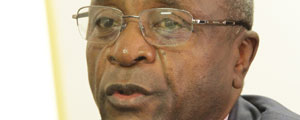
Cuthbert Dube is probably now history at the Premier Medical Aid Societies (PSMAS).
Guest Columnist Matthew Takaona
He left the organisation where he rose to the top in 1994 with his tail between his legs. His departure from PSMAS this week has obviously been received with mixed feelings. To many, he is a villain. To others, he is a man whose immense contribution to the medical services sector is second to none.
Indeed for one or two months Dube earned an unbelievable $230 000 in salary in an economy where the majority cannot spend a dollar a day. Before that his salary seemed to have had a bit of modicum of decency at around $60 000 a month.
For this “crime” of an exorbitant salary, Dube has been described with all sorts of names and indeed there is justification for public anger, particularly when service delivery is sometimes below expected standards and the economy is ailing.
However, the anger has been expressed without balance and this is a cardinal omission. The cry has been to crucify Dube! He, it appears from the many media reports, is a man who was at PSMAS doing nothing, but looting public funds.
But Dube has another side and in the name of journalistic fairness that side must also be told even if it doesn’t justify the salary.
Dube is probably one man who has made the biggest impact on health service delivery in the country since independence. I may not be able to say how he did it, but the landscape he built is there for all of us to see.
- Chamisa under fire over US$120K donation
- Mavhunga puts DeMbare into Chibuku quarterfinals
- Pension funds bet on Cabora Bassa oilfields
- Councils defy govt fire tender directive
Keep Reading
Dube took over the then Public Services Medical Aid Society (PSMAS) in 1994 as the new general manager. PSMAS was a small medical aid provider then with just 4 500 members, most of them Coloureds. Whites had started to migrate from this society.
The society was accommodated in a small house near the corner of George Silundika and Fourth Street with a mere 25 or so employees. The house was the only property that PSMAS had. There were few black civil servants on medical aid then and a medical aid was a luxury enjoyed mostly by workers in well-to-do private companies, not civil servants.
In fact, it may sound absurd, but many people in the civil service had even as late as 1994 not yet come across a medical aid scheme or heard about one.
When he assumed the post of GM, Dube told the Press that he had a dream to ensure that every Zimbabwean would one day be on medical aid and that everyone would have access to quality medical service.
It sounded like any other overzealous dream from a man who had just landed a post.
In 1995, Dube went on a massive campaign to educate civil servants about medical aid and its advantages and in the same manner that most of us still shun insurances, the campaign was a difficult one, but by the end of 1996 it had gained momentum.
By 1997, PSMAS had reached half-a-million members, overtaking Cimas as the largest medical aid society in the country. Up to now PSMAS remains the most affordable medical aid.
Dube went on a massive recruitment programme, employing nurses, clerks, marketers, pharmacists etc and set on a decentralisation programme that saw the society setting up offices and operations in all provinces and major towns in the country.
The small house that was the headquarters of PSMAS was brought down and in its place rose a modern six-storey building housing up to 100 workers. PSMAS House is among the best buildings in Harare.
PSMAS has some of the most well-paid workers in the country.
For a long time PSMAS was restricted to civil servants and realising the shortfalls of such an arrangement Dube opened it up and changed the name to Premier Medical Aid Society which could recruit any member.
With the new Premier, membership glided even further to more than 600 000. Faced with an economic malaise in the last decade and foreign currency shortages, Dube opened new branches in neighbouring countries in Zambia and Mozambique.
Even more important Dube formed Premier Medical Investment, a subsidiary of PSMAS. With this vehicle PSMAS went into overdrive to ensure that affordable services were there for everyone including the poor throughout the country.
Clinics and pharmacies were opened throughout Zimbabwe and dental, eye, laboratories and several other specialist services are available in these clinics. Patients are treated without paying cash as long as they have medical aid and this is quite a relief to civil servants who form the bulk of workers in this country.
There is no doubt that Dube turned PSMAS into an organisation that is the second biggest provider of medical services in the country after government. It has some of the most famous hospitals like West End, Clay Bank and Parkview.
Who has not directly or indirectly benefited from this grand project by Dube? Who else in the health services sector can stand up and match the contribution that Dube has made to the country? There might be none.
There are many corrupt executives who have nothing to show for their many years in office. In fact if at all, we have executives who have become far richer than the organisations that they lead.
Let’s not, as a nation, run the risk of throwing away the baby with the bath water.
Dube may have made his mistake, but that should not overshadow the toil he gave through the years and the benefits that many Zimbabweans now enjoy. Dube can never be a villain.











